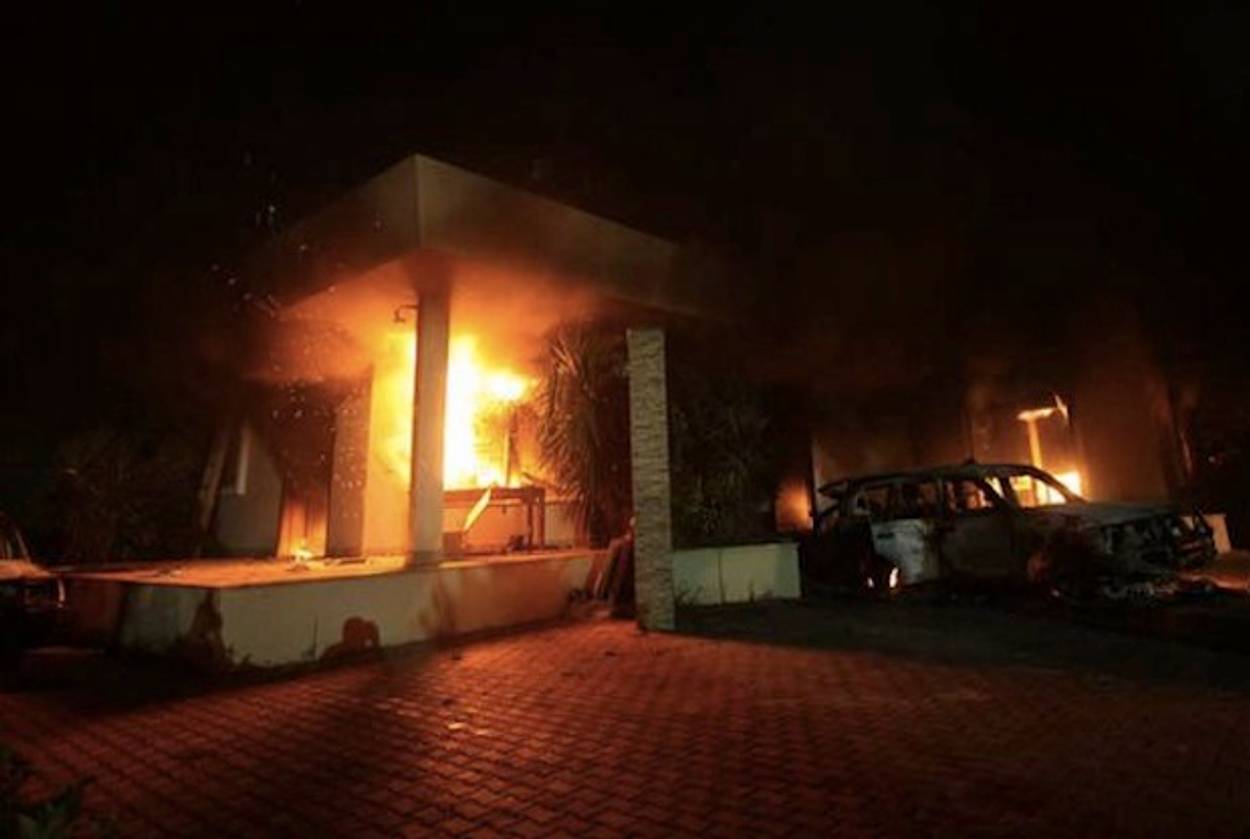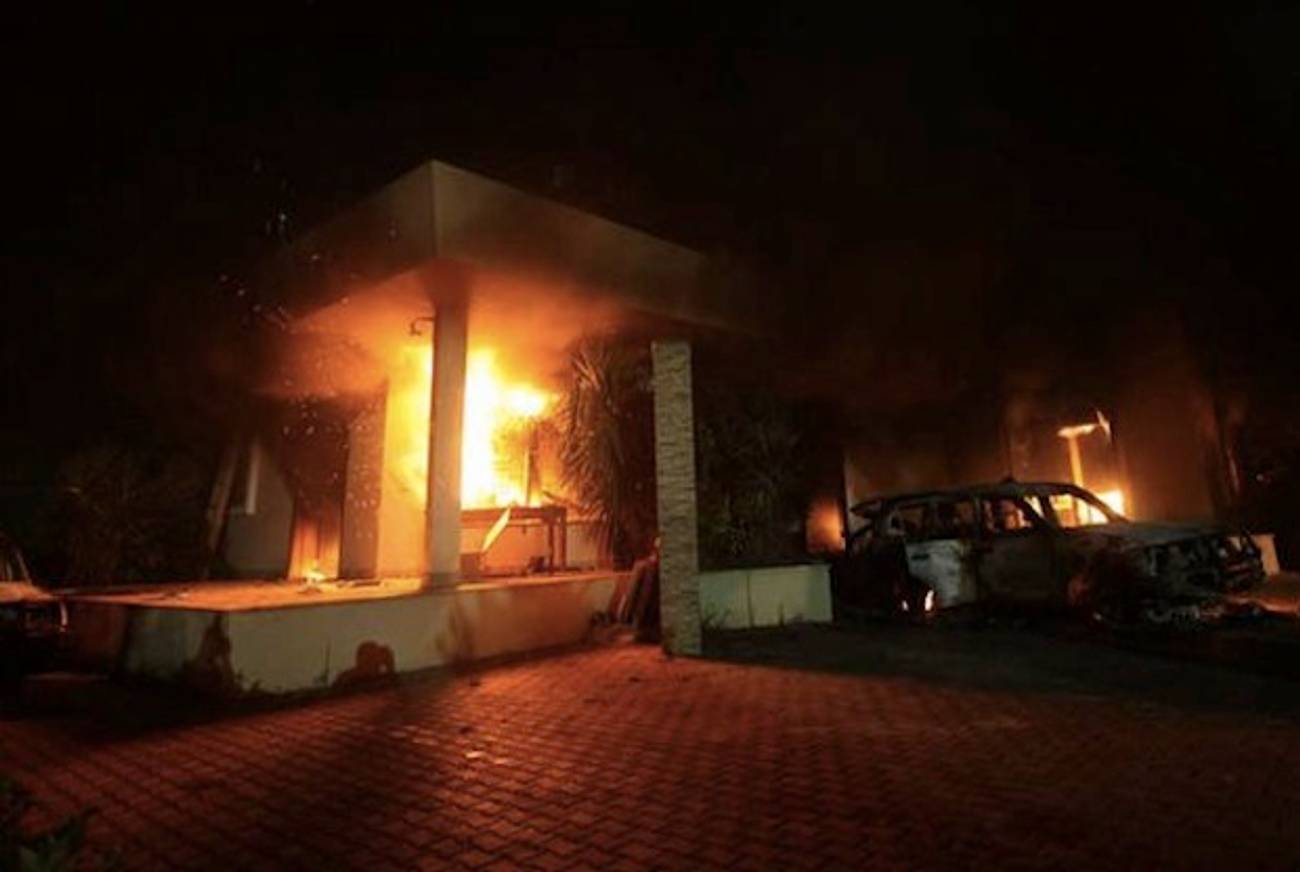U.S. Consulate in Libya Attacked
Four staff members, including the U.S. ambassador to Libya, killed




Many of us are waking up to the news of the disgusting attack on the United States Consulate in Benghazi, Libya, which took the life of Ambassador J. Christopher Stevens and three of his staff members.
Anyone who has read Stevens’ bio (or watched this heartbreaking video of him speaking optimistically about the future of Libya as he embarked on his assignment there) can see that Stevens was both faithfully and energetically committed to helping Libya stabilize in the months following its successful revolution against Muammar Gaddafi. In fact, Stevens boasted about the American role in helping the country rid itself of the bizarre tyranny that Gaddafi imposed. From Foreign Policy:
Stevens, a career Foreign Service officer who had previously served across the Middle East, had been the point person for U.S. diplomatic efforts during last year’s war to topple Muammar al-Qaddafi. After NATO’s establishment of a no-fly zone, he based himself in Benghazi, where he worked to unite the country’s disparate rebel groups under the Transitional National Council.
It is a tragic irony that the U.S. diplomat who had done so much to free Benghazi from the grip of a dictator that it despised would die at the hands of that city’s residents only months later, in a spasm of religion-fueled hatred.
The cause of the attack is now the subject of debate across the early-rising commentariat. As in Cairo, where the U.S. embassy was also stormed by a mob yesterday, a film mocking the Islamic prophet Muhammed, a film, which was promoted by the Koran-torching pastor Terry Jones, has been declared the culprit. Another point of intrigue here is that the filmmaker is an Israeli Jew, who in the wake of the attacks, has reportedly gone into hiding.
Afghani President Hamid Karzai who condemned the film as an “insult” and a “desecrating act,” is among the many blaming the film and, implicitly, the right of free speech that guaranteed its creation.
Other official statements were more measured and sane:
In a message on Twitter, Deputy Prime Minister Mustafa Abu Shagur of Libya said on Wednesday that he condemned “the cowardly act of attacking the U.S. consulate and the killing of Mr. Stevens and the other diplomats.”
President Obama offered this:
“While the United States rejects efforts to denigrate the religious beliefs of others, we must all unequivocally oppose the kind of senseless violence that took the lives of these public servants,” Mr. Obama said, calling Mr. Stevens “a courageous and exemplary representative of the United States” who had “selflessly served our country and the Libyan people at our mission in Benghazi” and, as ambassador, “supported Libya’s transition to democracy.”
“The brave Americans we lost represent the extraordinary service and sacrifices that our civilians make every day around the globe. As we stand united with their families, let us now redouble our own efforts to carry their work forward.”
Secretary of State Hillary Clinton added this:
“All the Americans we lost in yesterday’s attacks made the ultimate sacrifice. We condemn this vicious and violent attack that took their lives, which they had committed to helping the Libyan people reach for a better future.”
We’ll have more as the story develops.
Adam Chandler was previously a staff writer at Tablet. His work has appeared in the New York Times, the Wall Street Journal, the Atlantic, Slate, Esquire, New York, and elsewhere. He tweets @allmychandler.